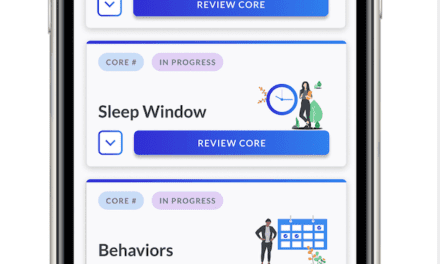The National Sleep Foundation (NSF) has broadened its audience reach with a two-track approach for its upcoming Sleep Health & Safety conference. This year’s NSF conference on March 5-6 offers an itinerary that caters to not only sleep specialists and experts involved in occupational safety, but also primary care physicians and allied health care professionals interested in practical information about sleep disorders.
Providing a gathering place and educational agenda for this blend of professionals is a key draw to the event. The two tracks offered at the conference—the health care professional track and the public health and safety track—offer an opportunity for professionals to see sleep medicine from one another’s perspective.
Speaking about the health care professional track, which includes sessions on identifying sleep disorders, sleep and comorbid conditions, and sleep in special populations, Andrew D. Krystal, MD, chair of the NSF conference section, says, “For the general health practitioner, the goal is to familiarize them and heighten their awareness about sleep-related issues in their practice so they can make a significant impact on the lives of their patients and to help them better interface with people whose main focus is sleep disorders.
“From the sleep specialist’s point of view,” says Krystal, who is also director of the insomnia and sleep research program and professor of psychiatry at Duke University, “this is a unique opportunity to get the primary care perspective on what it’s like to be practicing and to help them better interface with the primary care practitioner.”
The public health and safety track features topics including fatigue as it relates to transportation, shift work, military operations, law enforcement, and school start time. “For people who have an interest in helping such companies manage their operations, all of these talks are relevant,” says Gregory Belenky, MD, research professor and director of the sleep and performance research center at Washington State University and cochair of the conference. “Consulting to corporations on how to effectively roster and schedule their personnel for 24/7 operations is an untapped area and sleep medicine clinics could easily establish their reputation in this area.” This conference would be a good place for sleep professionals to network and learn more about these opportunities, says Belenky.
It’s these opportunities and the convergence of an array of professionals that lead Christopher Drake, PhD, to call the conference a needed next step in the growth of sleep. According to Drake, clinical psychologist at Henry Ford Hospital Sleep Disorders and Research Center, and chair of the conference education committee, “Sleep research and sleep medicine both have able champions looking to grow those disciplines. But the general health care community is sort of stuck. We need to help bridge that gap between what primary physicians and their patients know about sleep. Our vision is that Americans and their health care providers understand the importance of sleep, the impact of its disorders, and have the knowledge and resources to improve and maintain all aspects of sleep.”
Sleep Health & Safety will be held in Washington, DC. More information about the agenda and registration can be found at the conference Web site.




